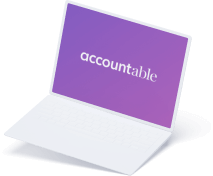
Guaranteed income insurance when you’re self-employed: a must?
Read in 2 minutes
When you’re self-employed, the last thing you want to be dealing with is illness or an accident. Thanks to your social contributions, you receive benefits from your health insurance fund if you can’t work, but that’s not always enough to cover all your costs. With guaranteed income insurance (also known as disability insurance), you receive an additional benefit that compensates for your loss of income when you’re out of action.
What is guaranteed income?
If your doctor gives you a sick note for 8 days or more, as a self-employed person, you receive a benefit from your health insurance fund during that period of incapacity for work. This amount isn’t always enough, though, especially if the costs of your business continue.
Enter guaranteed income insurance. This insurance helps bridge the gap between your sickness benefits and your usual income if you’re incapacitated for a long time. Your guaranteed income kicks in after a pre-determined waiting period, for example, after 1 or 3 months.
How much will I receive?
The amount you receive depends on various factors, such as:
- the amount of your insurance premium
- the benefits you (may) get from your health insurance fund
- your degree of incapacity
- the waiting period defined in your contract, i.e. how long you need to wait before the insurance starts to pay
💡Accountable tip: If you opt for a longer waiting period, you pay a lower premium. Keep in mind that your incapacity for work must be certified by a doctor.
Taking the above factors into account, you can choose how much you want to receive if you can no longer work for a period of time. However, you can’t exceed a maximum of 80% of your gross income.
Is guaranteed income insurance mandatory when you’re self-employed?
Insuring yourself against loss of income is not compulsory if you are self-employed. However, it can be a welcome financial addition if you’re unable to work for a long period – especially if the costs of your business continue.
Conditions not covered
Does guaranteed income sound like the ideal backup plan? Just bear in mind that you can’t already be incapacitated due to an accident or illness when you take out a policy. Also, not all conditions are covered. In many cases, psychiatric and mental problems, for example, are excluded. Therefore, it’s important to compare policies between different insurers and be as informed as possible before signing a contract.
Is guaranteed income insurance tax deductible?
Insurance for guaranteed income is not compulsory, but it can give you peace of mind on the sometimes uncertain journey of being self-employed. Moreover, the premiums you pay for your insurance can be fully deducted from your taxable income.
💡Accountable tip: Guaranteed income insurance can often be combined with a Voluntary Supplementary Pension Scheme for the Self-Employed (VSPSS/PCLI/VAPZ), which is also fully deductible.
Discover which risks you can protect yourself against when you’re self-employed.
Did you find what you were looking for?
Happy to hear!
Stay in the know! Leave your email to get notified about updates and our latest tips for freelancers like you.
We’re sorry to hear that.
Can you specify why this article wasn’t helpful for you?
Thank you for your response. 💜
We value your feedback and will use it to optimise our content.






